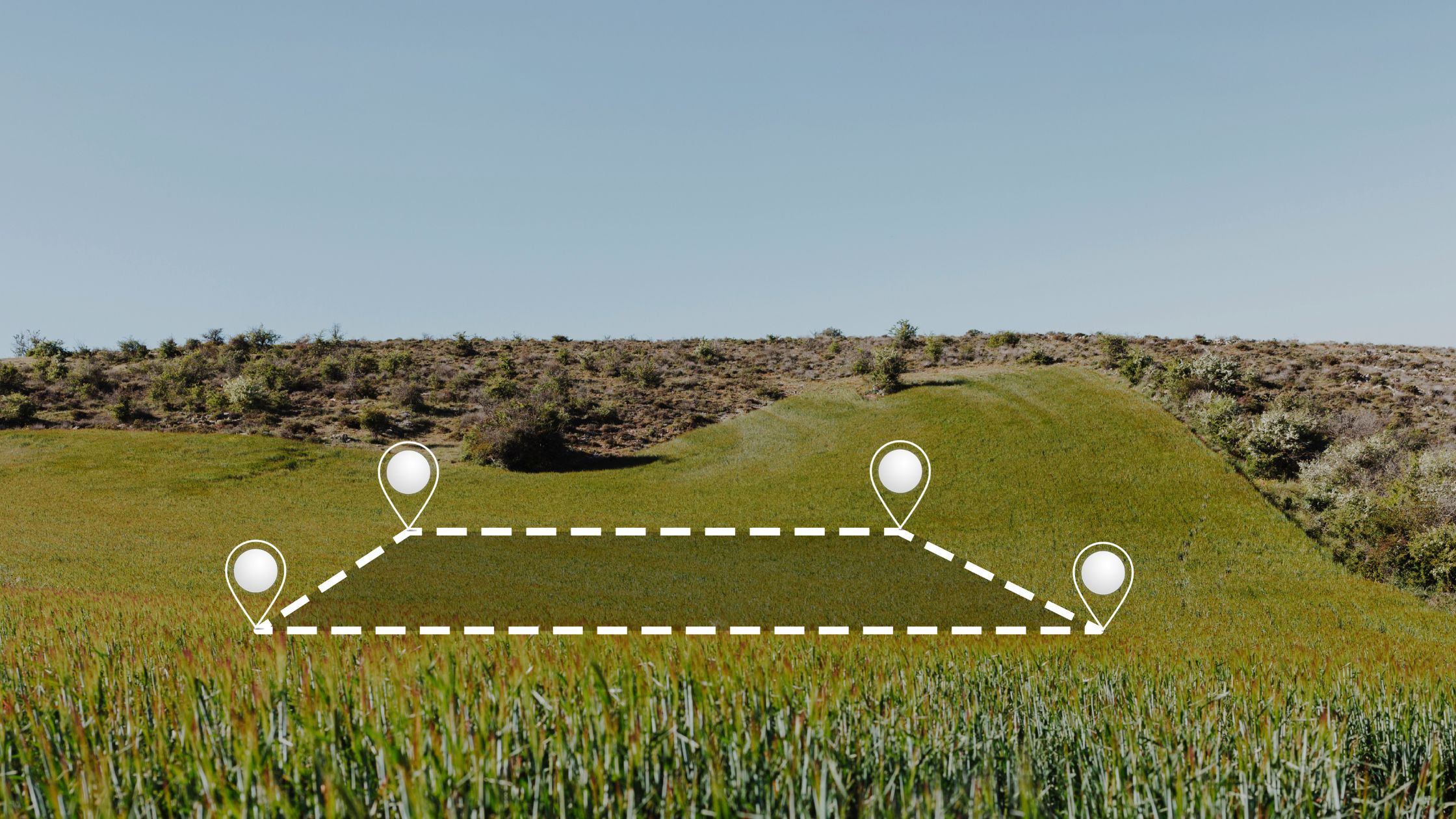Understanding how land value is assessed before applying for California land loans is essential. This can help you ensure that the appraised value — which directly impacts the terms of your loan and future investment returns — accurately reflects the property’s potential.
This blog discusses how land values are generally determined and then examines recent data on farmland pricing trends in California.
Land value defined
Land value refers to the worth of a piece of property, including the land’s inherent value and any improvements (such as structures and modifications).
Note that land value is different from site value, which considers the land’s value under the assumption that no leases, mortgages, or other encumbrances could alter its worth.
Site value focuses purely on the land’s inherent attributes—such as its location, topography, and natural resources—without considering the impact of any improvements or legal constraints (such as zoning regulations).
Appraisals and land value
Third-party real estate appraisals are essential in determining land value. These appraisals go beyond comparative market analyses that compare a property to recent sales.
Instead, appraisers conduct a thorough inspection of the land itself. This includes evaluating factors like soil quality, water access, and fencing. By comparing these features to similar properties, the appraisal arrives at a more nuanced and reliable estimate of the land’s actual value.
Detailed appraisals benefit both lenders and borrowers.
Lenders use this evaluation when deciding whether to approve land loans for potential borrowers and refinancing options for current landowners.
With an accurate appraisal, lenders can ensure that the loan amount reflects the property’s market value.
Borrowers intending to take out California land loans can also benefit from a detailed and accurate evaluation.
A strong appraisal report gives a borrower more leverage when negotiating loan terms with a lender. This could lead to a more favorable interest rate or other concessions.
Moreover, a solid appraisal allows borrowers to secure the total loan amount they need to purchase or refinance the property, which has several key benefits.
It ensures they have enough capital to cover the entire purchase price of the land and allows them to factor in additional expenses that might arise during the buying process (such as closing costs or unexpected repairs.
Perhaps most importantly, a high appraisal value can open the door for additional financing to cover potential property improvements, such as building new fencing or overhauling irrigation systems.
Appraised value plays a critical role in determining loan approval and terms. Should the appraised value fall short of the purchase price or desired loan amount, the lender may reduce the loan amount, impose stricter terms, or reject the loan application completely. Providing a detailed appraisal upfront helps prevent this scenario.
Land valuation – Special considerations
Land value can be affected by environmental risks like flooding, mudslides, or earthquakes. These risks can deter potential buyers and reduce the land’s value, making it more challenging to maintain a safe and consistent presence on the property.
Restrictive covenants and environmental considerations may also limit land use. Even if the land is ideally located and has access to desirable resources, legal and regulatory constraints may limit its development potential or the ability to fully utilize discovered resources (such as oil).
Trends in California farmland value
California’s farmland values have generally shown year-over-year increases. The state’s dynamic agricultural landscape drives this trend.
The latest publicly available data (which we will use throughout this blog) shows that 38% of transactions statewide exceeded $20,000 per acre, and nearly 27% surpassed $25,000 per acre.
Notably, prices vary considerably across different regions and types of land use. Understanding these trends is crucial for borrowers interested in California land loans.
Regional differences
The Central Coast and Sacramento Valley regions witnessed remarkable average sales price increases, jumping 30% and 16%, respectively. In contrast, prices remained flat, primarily in the San Joaquin Valley.
These variations highlight the importance of location in determining farmland value. After all, location is influenced by water availability and agricultural production capabilities.
Irrigation’s critical role
California’s agricultural sector heavily relies on irrigation (with a staggering 80% of the state’s water dedicated to this purpose). This dependence is evident in the vast amount of irrigated land: a whopping 9 million acres, representing 80% of all cropland.
It’s no surprise that water availability and rights significantly impact farmland valuation.
Investors should assess these factors when valuing farmland. They also directly impact decisions related to California land loans, as lenders need to understand the property’s long-term sustainability and value.
Impact of crop type
Land value is also influenced by the type of crop grown on it. Vineyards in Napa, for instance, fetch higher prices than non-irrigated hay fields in Southern California due to the premium placed on wine production.
Data shows that Commercial-scale Fruit or Tree Nut grounds saw a nearly 21% increase in value because these crops tend to be lucrative.
Forage, grassland, and Field and grain Land also increased in value, while Vegetable and specialty land showed flat or declining values (although data limitations caution against drawing definitive conclusions).
The effect of tract size
Sales by tract size analysis reveal exciting trends. Parcels ranging from 50 to 75 acres witnessed the most significant percentage increase (28.89%), with an impressive average sales price of $19,190 per acre.
Similarly, parcels between 25 and 50 acres saw an 8% year-over-year increase, averaging $17,336 per acre.
Meanwhile, smaller (0- to 25-acre) and more oversized (100+ acre) parcels experienced modest increases in average sales prices of 5.24% and 5.27%, respectively, with the smallest parcels fetching the highest average price of $22,535 per acre.
Are you thinking of applying for California land loans?
Private Capital Investors specializes in providing tailored financing solutions for those looking to acquire or refinance land in California.
With our expertise in California land loans and alternative financing (including hard money, bridge, and stated income loans), we can deliver solutions that give you a competitive edge.
Contact Private Capital Investors today.





